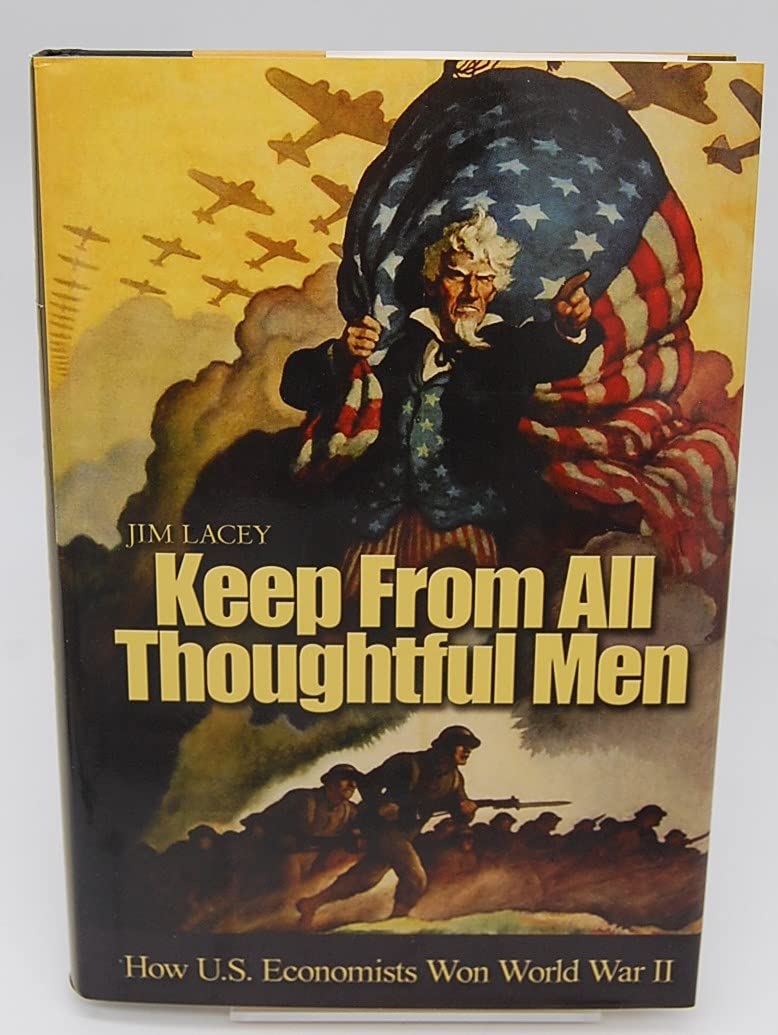Sobre nosotros
Servicios al cliente
Atención al cliente
Acceso Regional
Legales y políticas
Obtén la aplicación

Apunta tu cámara para descargar la aplicación
Copyright © 2024 Desertcart Holdings Limited


Full description not available
T**P
ECONOMIC PLANNING IN WWII!
Even though this book breaks new ground and provides new analysis of the era covered it should only be considered a starting point.Current "doctrine" is the so-called COME-AS-YOU-ARE WARFARE as far as mobilization policy. I am not expert in economics, mobilization, or logistics but all those involved in those disciplines IMO would find items of interest in this book.I also suggest that good analysis in English of German WWI and WWII mobilization and logistics are rare. And the fact that Albert Speer was able to supply the German war machine as late as December 1944 seems a puzzle.What is necessary for all to know is that the leadership circles in the USA seldom worry about either civilian or military mobilization. Cleary supply chain issues and just-in-time supply are interesting logistical doctrines.THE PROBLEM IS THAT MOBILIZATION FOR NATIONAL NEEDS--CIVIL OR MILITARY-OR INTERTWINED SHOULD BE STUDIED CLOSELY.Alan Gropman is a lone voice worth listening to and referenced several times in the bibliography.And to blame any Flag Rank for ignorance on national income accounting is silly given the status of the Economics profession as of the late 1930's.IMO John Maynard Keynes writings should be review closely in the context of war and peace as background.So here is my takeaway on this book and why I gave it a 5 Star rating.First, few understand the importance of the civil sector in WWII and turning the entire economy over to the military might have lost the war and not help win it.Second, an expert in the right place and right time is always important.Third, for whatever reasons WWII was largely fought by the USA with two militaries [perhaps three] and the National Security Act of 1947 was an essential reform for both military mobilization and logistics.Fourth, FDR was the real domestic economic czar!Five, the secret weapon in WWII for the USA was the FEDERAL RESERVE established in 1916!Six, wars are almost never as short as WWI and WWII anymore.Seven, the economy and technology have changed warfare. IMO WWI was a telephone war and WWII a radio war.AND FINALLY NO ONE IN CIVIL GOVERNMENT OR THE MILITARY UNDERSTANDS THAT MOBILIZATION AND LOGISTICS FOR NATIONAL NEEDS REMAINS CRUCIAL IN CERTAIN CATASTROPHIC SCENARIOUS!
G**B
A wonderful new perspective
While I found the book thoroughly engrossing, I was disappointed that it ended before even Operation Torch in North Africa. It explains how it came to be that the decision to invade Normandy was moved to 1944 and how the first inklings of that date had come to be known to some individuals before even Pearl Harbor was attacked but I was hoping for more. In particular, I was wondering how they coped with the challenges of the Manhattan Project which would have been completely unforeseen at this time and must have thrown a huge monkey wrench into their production planning.Other things I had wondered were how losses in transatlantic shipping were addressed; how, after victory in Europe, were the logistics swung toward the Pacific theater; what surprised them as war production ramped up in 1943 and 1944? In other words, I suppose I was expecting a more comprehensive treatment of WWII economics and logistics so I give this only 4 stars rather than 5 but I will say that this is a very important read for anyone who would want to see more of "the big picture" behind the planning of WWII.The one lesson that the book did drive home was that setting production goals too high can actually result in lower production because raw materials diverted to, say, the building of new production facilities which might sit idle for lack of raw materials could have seen the diversion of the raw materials used on that construction to the building of useful war material in the plants that are already built. It is possible to run yourself out of raw materials early by overbuilding production facilities too early. The steel used in building a factory to produce tanks that now sits idle for lack of steel could have been put to use building tanks in plants already operating.It also shows by clear example how the failure to keep top military planners properly informed of actual production capacity could have resulted in even further delay in the prosecution of the war and how giving responsibility for obtaining information with no authority to actually compel the provision of that information can be a waste of everyone's time.
J**M
Fascinating Insights
Fascinating tale about the intersection of politics, war time needs, economics, and bureaucratic infighting. Key take away for me was how different the events of work war II could have been without the contributions of armies of statisticians crunching numbers to calculate relatively new models of economic output. Without the wisdom of Rosevelt's top lieutenants to offer critical support and timely interventions, world war ii may have last much longer and taken far more lives.
J**É
A description of role of economic planning in preparation to ...
A description of role of economic planning in preparation to WWII. Interesting but requires an effort to sort through all the details of economics.
A**S
very thin
a whole book about production not being enough in 1943?Self evident.Far better the book "arsenal of democracy" which is fascinating
Trustpilot
Hace 1 mes
Hace 1 día